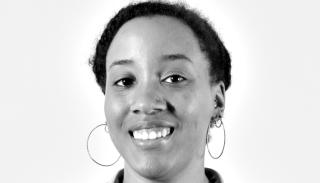
Pennsylvania Immigrant and Citizenship Coalition Bridging Gaps Across University Campuses
Maria Sotomayor of PICC uses her story to change the lives of others.
While millenials are the beneficiaries of the Deferred Action for Childhood Arrivals (DACA) program, many millenials who qualify feel alone or are unaware of their options during the immigration process. Facing everything from a lack of access or information to healthcare and public schools to information about college and college-access programs, undocumented students are often in need of additional support and information during their high school and college years. “It can be difficult sometimes for immigrants to access programs education, healthcare and just going through the process,” says Maria Sotomayor of her advocacy work throughout Philadelphia.
Maria Sotomayor is working to educate students across the Delaware Valley of the immigrations process and the options they have during these years. As the Civic Engagement Coordinator for the Pennsylvania Immigration and Citizenship Coalition (PICC), Sotomayor speaks at high schools and universities throughout the area to encourage them to learn more about the immigration process and creating a fulfilling life while going through the process. Recently, Sotomayor spoke to a class of Criminal Justice majors at Neumann University, the university she graduated from in the class of 2013.
“I want to educate people who are indifferent about immigrants or people who don’t quite know what the immigration process is. IN a way, I want to give them an understanding of it and also challenge what they have heard from other people. I go to colleges to often to counsel students and teachers who work with immigrants and help them better cater to immigrants and refugees in their classrooms.”
Born in Ecuador and raised in Pennsylvania, she is a DACA (Deferred Action for Childhood Arrivals) recipient. Coming from a mixed-status family and community impacted by the current immigration system, Maria’s goal is to educate and support immigrant communities to use their voice and power to change the system. Often that takes place in all education levels across the country.
When asked if she sees a difference between high school students and university students who are being faced with the same topic Sotomayor addressed the dynamic she often sees when “Well I would say that in high school classrooms the conversation is not so direct. I think the conversation is less overt. Just because I think it’s important for students to understand what their peers are directly going through. And so it’s an opportunity for them to think about their own experiences as young people [...] It gives people the opportunity to start thinking about these hard conversations and also to contemplate where young kids can gain new knowledge and resources as well, making sure they feel connected.”
RELATED CONTENT
On June 15, 2012, the Secretary of Homeland Security announced that certain people who came to the United States as children and meet several guidelines can request consideration of deferred action for a period of two years, subject to renewal. They are also eligible for work authorization.
During the talk, Sotomayor described her experience as an undocumented immigrant and discussed PICC’s mission with the class.
“I talk about DACA and a lot of programs that might benefit young people. And I talk about the fact that they do have a way to gain access to college even they are undocumented or their parents are undocumented. So they understand that regardless of what they’re saying, they have the ability to access college, or tech programs, or even going into different jobs that don’t require an education,” says Sotomayor.
When approaching the key topic of the conversation, “What do millenials think about immigration?” Sotomayor focuses on the immigrant or refugee status students who may be facing tthese issues by themselves, often in silence. “In my experience, there weren’t a lot of minority students and I was one of the few DACA students so I spent a lot of time feeling very alone. And so a lot of the work that we do is ensuring that our students don’t feel alone and that they there are people and organizations that will guarantee they don’t have to feel so alone,” says Sotomayor.
The presentations also focus on the mental health of students and ensuring they have opportunities to maintain optimum health and wellness as they pursue the advancement that Sotomayor is hoping to promote. “One of the things so many high school students especially connect to is when I talk about being in high and being asked to apply for a driver’s license and go with my friends or checking into college and not know what the process is, and not know what is available for me. Like, having absolutely no knowledge that college was even a possibility for me And then also, the other thing is, the constant fear of family separation whether you’re a citizen who has undocumented parents or an undocumented parent or a family member who is undocumented, that fear is always there and I feel like a lot of kids connect with that,” Sotomayor.











LEAVE A COMMENT:
Join the discussion! Leave a comment.